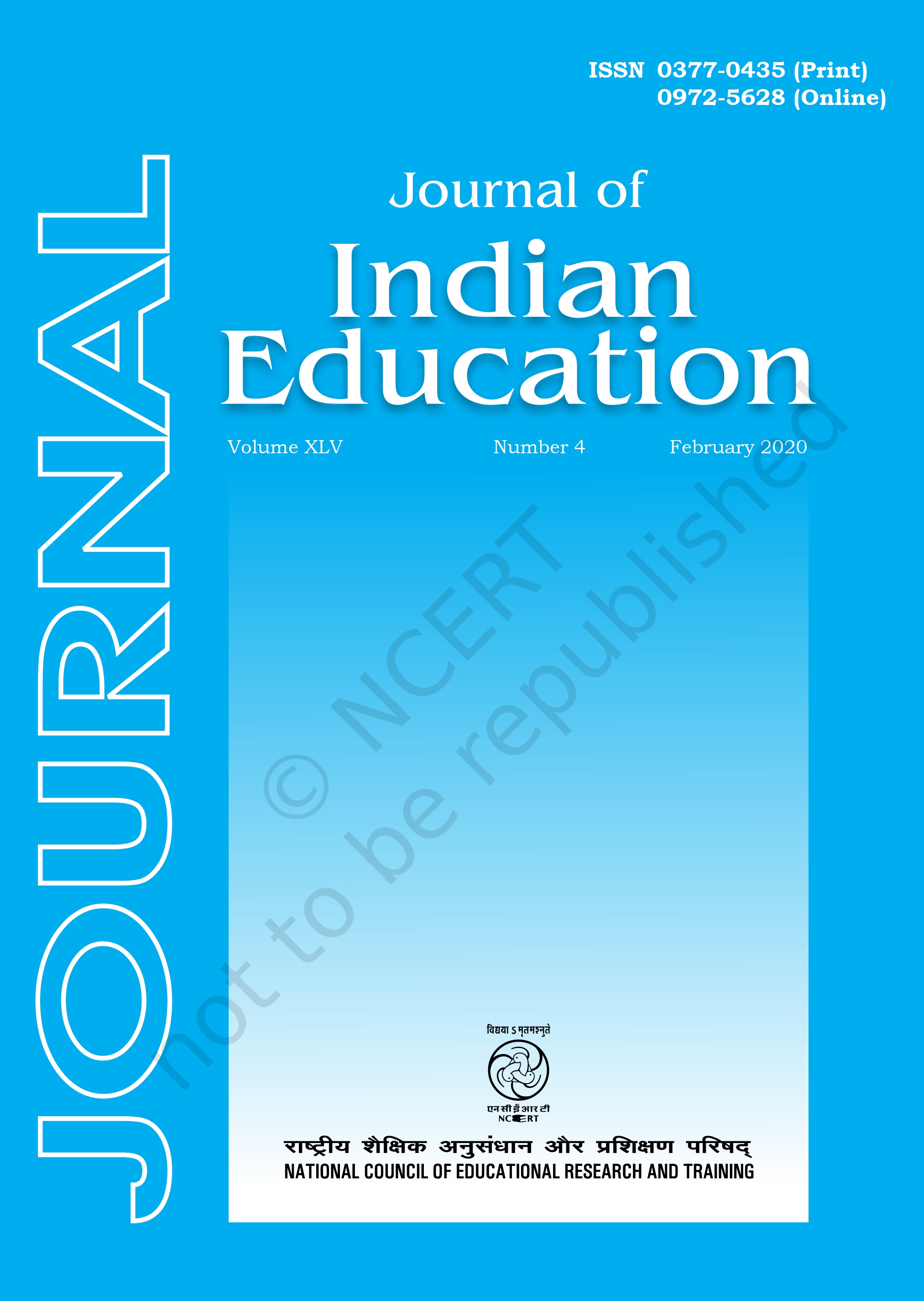Published 2020-02-29
Keywords
- Educational Research,
- Science Self-Efficacy
How to Cite
Abstract
The present study was conducted to compare the effect of the cooperative learning techniques (JIGSAW IV and STAD) on science self-efficacy of VIII graders with different cognitive styles. The data was collected from a set of 240 students of VIII graders randomly chosen from three government schools of Chandigarh. Pre-test, post-test with one control group design was used and the data obtained was subjected to 2-way Analysis of Variance. The major findings of the study were: 1) The field-independent and fielddependent group of students yielded a significant difference in the mean difference on science self-efficacy scores. Field-dependent students exhibited better science self-efficacy than field-independent students. 2) Students exposed to cooperative learning strategies JIGSAW IV and STAD exhibited better science self-efficacy than the students belonging to conventional group. Among the two cooperative learning strategies, students belonging to JIGSAW IV yielded better science self-efficacy scores than students belonging to STAD and control group. 3) Interaction between treatments and cognitive styles was found to be significant.

